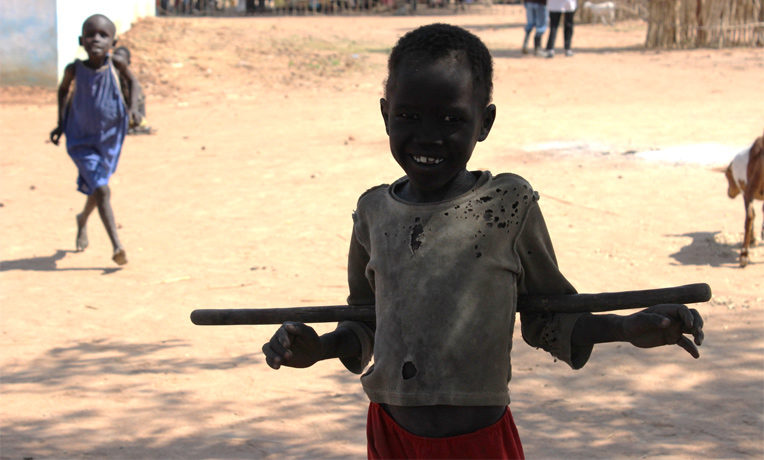Learning to walk with people through their pain.
Beneficiaries sat under the shade of trees as they waited for the food distribution process to begin near Aweil, South Sudan. The sun beat down as noon approached. I took a seat on a school bench in the shade with my guide for the day, Nyasha, our monitoring and evaluation officer from Zimbabwe.
In the midst of children running around and food items being unloaded from trucks, I sat and observed the world around me. Nyasha and I talked about the difficulties South Sudan faces, as well as the country’s potential. A boy in tattered shorts approached us.
“You know, at one point, I was just like that little boy in the tattered shorts. I didn’t have big dreams because this was all I knew,” Nyasha said.
But from where Nyasha stands now, an educated man with a master’s degree, he saw the children’s potential.
“These children should dream,” he said.
One scripture passage I keep coming back to lately is Hebrews 13, especially verses 1-3:
“Let brotherly love continue. Do not forget to entertain strangers, for by so doing some have unwittingly entertained angels. Remember the prisoners as if chained with them—those who are mistreated—since you yourselves are in the body also” (NKJV).
As Nyasha looked out at the crowds of people whose lives are similar to the one he used to live, I knew he could somewhat relate to what they were going through – and he wants to help them.
While I haven’t physically been there myself, the author of Hebrews asks us to remember those who suffer as if we were suffering ourselves. I think this means truly seeking to understand their pain even if I can’t completely relate – to let their pain break my heart.
Some of the greatest advocates in history are people who fought for the pains they endured themselves, such as fighting for freedom because they endured oppression.
Yet, I think there’s something beautiful about standing with people who suffer pains that aren’t our own. To let their pain be our pain. Isn’t that what Christ did?
He sat with those who experienced great suffering and let them know He was with them. On the cross, Christ took all our sins – not one that He could claim as His own – and He endured the pain so that we don’t have to suffer for eternity.
I’m not saying that we can even remotely compare to what Christ did for us on the cross. But Jesus modeled for us the way we should care for others.
Jesus didn’t look at others as lost causes, rather, as people with dignity. He saw potential in people despite their brokenness. He took on pain that wasn’t His as if it was His own.
May we love others as though their pain is our own. While our earthly suffering comes in different forms, Christ’s blood was shed for all.








